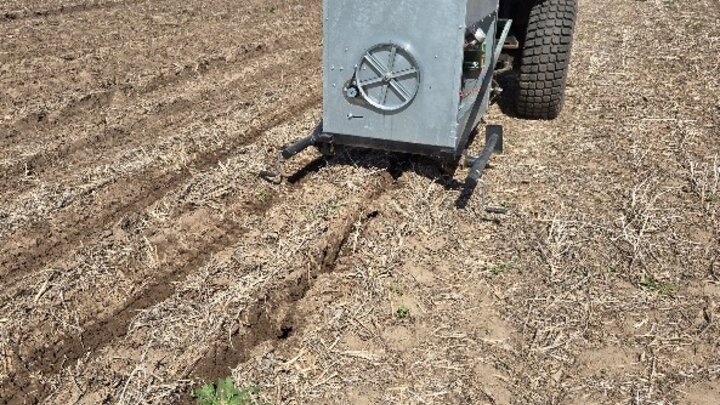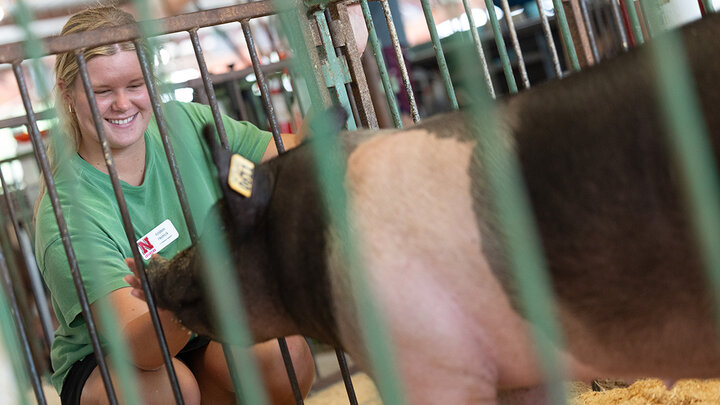High groundwater nitrate is a serious problem affecting drinking water quality in many intensively agricultural areas across the United States, with growing annual treatment or avoidance costs to public water systems and private well owners. More than 2.5 million acres of irrigated cropland in Nebraska exceeds the 10 mg/L nitrate-N standard for safe drinking water. The incidence of high groundwater nitrate is greatest beneath intensively irrigated sandy, well-drained soils, vulnerable to nitrate leaching below the root zone.
Few cost-effective alternatives are available to producers to control nitrate losses in highly vulnerable, irrigated soils. A project supported by the Nebraska Corn Board is demonstrating the efficacy of using waste wood carbon injection for improving groundwater quality in areas vulnerable to nitrate leaching. Using modified farm equipment, a subsoil bioreactor layer was created under two irrigated corn test plots in northeast Nebraska in May 2024. Soil and porewater samples were collected bimonthly during the growing season for measuring nitrate, ammonia, carbon and other parameters designed to test the effectiveness of installing a subsoil bioreactor at the plot scale. Preliminary results of the nitrate-N concentrations between deeper soils receiving ground wood carbon show a systematic (~15-20%) reduction in nitrate-N concentrations. Deeper cores collected before and after the growing season are being analyzed for microbial indicators to support denitrification as the mechanism for nitrate reduction. On-farm injection of ground waste wood could also provide an economical method for increasing soil organic carbon and reducing greenhouse gas emission. Investigators for this project include Daniel Snow, Arindam Malakar, Aaron Daigh, Daniel Miller (USDA-ARS) and graduate student Xiaochen Dong.



